World
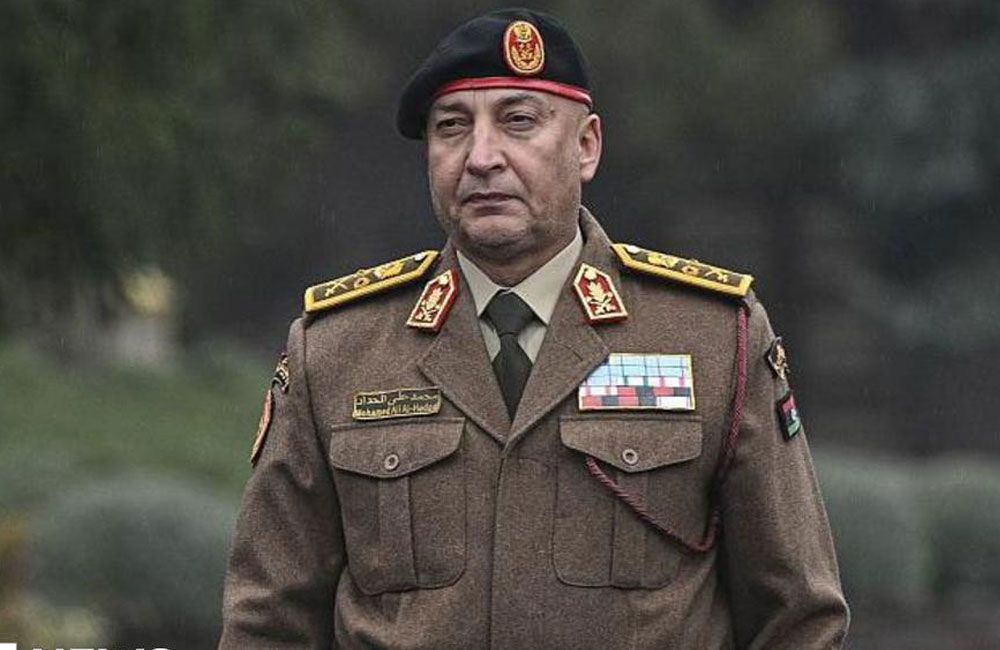
Libyan Army Chief Killed in Plane Crash
Libyan Army Chief Mohammed Ali Ahmed Al-Haddad has been killed in a tragic plane crash near Ankara, Turkey, according to official reports.
The military commander was travelling aboard a private jet carrying four senior army officers and three staff members when the aircraft went down. The jet had departed from Ankara and was en route to Tripoli, Libya, at the time of the accident.
All eight people on board were killed in the crash.
Moments before the incident, the pilots reportedly alerted air traffic control to a technical malfunction and attempted to dump fuel in preparation for an emergency landing. However, the aircraft crashed before it could land.
Investigations into the cause of the crash are currently underway.
General Al-Haddad had travelled to Turkey to take part in high-level discussions aimed at strengthening defence and security cooperation between the two countries.
In response to his death, the Libyan government has declared three days of national mourning, describing the loss of the army chief as a major blow to the nation.

US approves $11.1 billion arms package for Taiwan, largest ever
FOREIGN MINISTER'S U.S. VISIT

Japan prepares to restart world's biggest nuclear plant, 15 years after Fukushima
RELUCTANT RESIDENTS WARY OF RESTART
STRENGTHENING ENERGY SECURITY
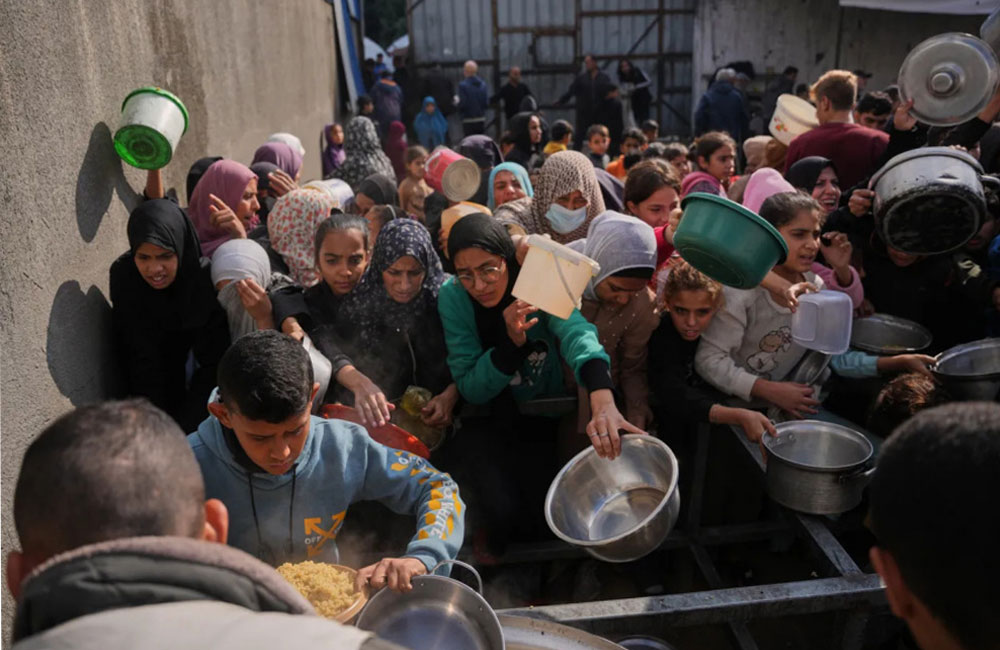
UN, aid groups warn Gaza operations at risk from Israel impediments
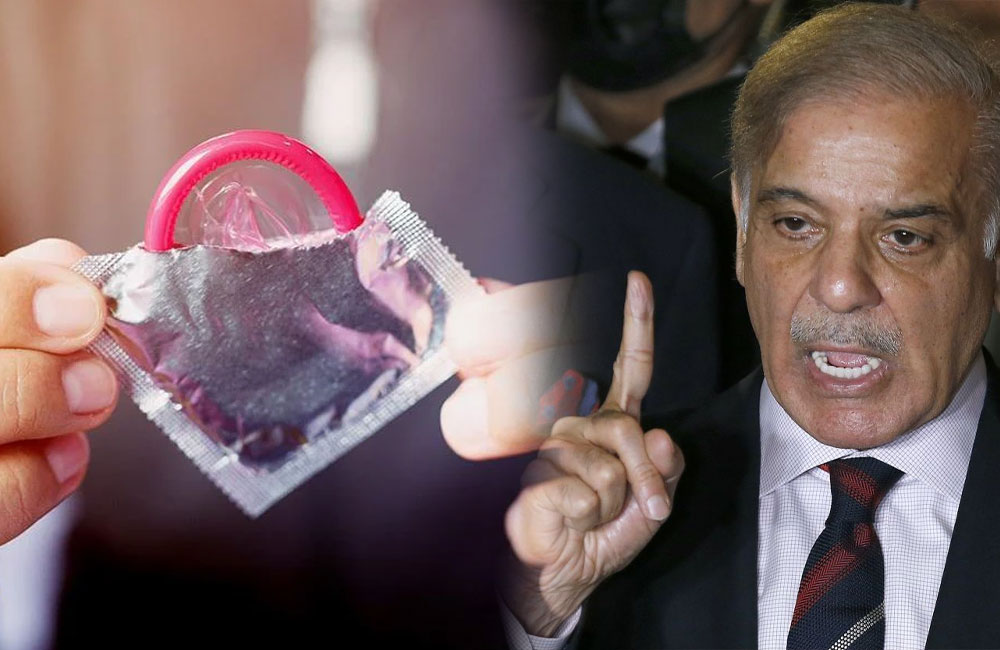
No cheaper condoms in Pakistan: IMF rejects PM Shehbaz Sharif’s request, leaves govt red-faced
Pakistan, which has one of the highest population growth rates in the world along with high levels of inflation, will have to continue shelling out more money for contraceptives like condoms since the International Monetary Fund (IMF) has rejected a request by the Shehbaz Sharif government to slash GST rates.
According to Pakistan-based The News, condoms, which attract 18% GST, will remain expensive in Pakistan since IMF has firmly said no to the Federal Board of Revenue's (FBR) recent proposal.
It said that such measures should only be discussed in the upcoming budget.
But why is Pakistan listening to IMF? It’s because Pakistan is currently under an IMF bailout programme, which comes with strict conditions on taxes, spending and revenues.
According to the report, the FBR had reached out to the IMF at its headquarters in Washington via email, hoping for a GST relief on contraceptives.
It pegged the revenue impact of the relief at anywhere between PKR 400-600 million. It conveyed the wish of Shehbaz Sharif at a virtual meeting that followed.
However, the IMF rejected the demand, saying that tax reliefs are not possible in the middle of a fiscal year, especially at a time when the country is already struggling to meet its revised revenue targets.
The report said that IMF also rejected a proposal by Pakistan to cut GST on sanitary pads and baby diapers.
Pakistan’s population growth rate stands at a staggering 2.55 percent — among the highest in the world — with nearly six million people added each year, highlighting the growing disconnect between policy intent and fiscal decision-making.
Recently, the IMF imposed 11 new conditions on Pakistan under its $7 billion bailout programme to crack down on corruption. This took the total IMF compliance requirements on Pakistan to 64 over the last 18 months.
(Source - Moneycontrol.com)

Militant groups are experimenting with AI, and the risks are expected to grow
As the rest of the world rushes to harness the power of artificial intelligence, militant groups also are experimenting with the technology, even if they aren’t sure exactly what to do with it.
For extremist organizations, AI could be a powerful tool for recruiting new members, churning out realistic deepfake images and refining their cyberattacks, national security experts and spy agencies have warned.
Someone posting on a pro-Islamic State group website last month urged other IS supporters to make AI part of their operations. “One of the best things about AI is how easy it is to use,” the user wrote in English.
“Some intelligence agencies worry that AI will contribute (to) recruiting,” the user continued. “So make their nightmares into reality.”
IS, which had seized territory in Iraq and Syria years ago but is now a decentralized alliance of militant groups that share a violent ideology, realized years ago that social media could be a potent tool for recruitment and disinformation, so it’s not surprising that the group is testing out AI, national security experts say.
For loose-knit, poorly resourced extremist groups — or even an individual bad actor with a web connection — AI can be used to pump out propaganda or deepfakes at scale, widening their reach and expanding their influence.
“For any adversary, AI really makes it much easier to do things,” said John Laliberte, a former vulnerability researcher at the National Security Agency who is now CEO of cybersecurity firm ClearVector. “With AI, even a small group that doesn’t have a lot of money is still able to make an impact.”
How extremist groups are experimenting
Militant groups began using AI as soon as programs like ChatGPT became widely accessible. In the years since, they have increasingly used generative AI programs to create realistic-looking photos and video.
When strapped to social media algorithms, this fake content can help recruit new believers, confuse or frighten enemies and spread propaganda at a scale unimaginable just a few years ago.
Such groups spread fake images two years ago of the Israel-Hamas war depicting bloodied, abandoned babies in bombed-out buildings. The images spurred outrage and polarization while obscuring the war’s actual horrors. Violent groups in the Middle East used the photos to recruit new members, as did antisemitic hate groups in the U.S. and elsewhere.
Something similar happened last year after an attack claimed by an IS affiliate killed nearly 140 people at a concert venue in Russia. In the days after the shooting, AI-crafted propaganda videos circulated widely on discussion boards and social media, seeking new recruits.
IS also has created deepfake audio recordings of its own leaders reciting scripture and used AI to quickly translate messages into multiple languages, according to researchers at SITE Intelligence Group, a firm that tracks extremist activities and has investigated IS’ evolving use of AI.
‘Aspirational’ — for now
Such groups lag behind China, Russia or Iran and still view the more sophisticated uses of AI as “aspirational,” according to Marcus Fowler, a former CIA agent who is now CEO at Darktrace Federal, a cybersecurity firm that works with the federal government.
But the risks are too high to ignore and are likely to grow as the use of cheap, powerful AI expands, he said.
Hackers are already using synthetic audio and video for phishing campaigns, in which they try to impersonate a senior business or government leader to gain access to sensitive networks. They also can use AI to write malicious code or automate some aspects of cyberattacks.
More concerning is the possibility that militant groups may try to use AI to help produce biological or chemical weapons, making up for a lack of technical expertise. That risk was included in the Department of Homeland Security’s updated Homeland Threat Assessment, released earlier this year.
“ISIS got on Twitter early and found ways to use social media to their advantage,” Fowler said. “They are always looking for the next thing to add to their arsenal.”
Countering a growing threat
Lawmakers have floated several proposals, saying there’s an urgent need to act.
Sen. Mark Warner of Virginia, the top Democrat on the Senate Intelligence Committee, said, for instance, that the U.S. must make it easier for AI developers to share information about how their products are being used by bad actors, whether they are extremists, criminal hackers or foreign spies.
“It has been obvious since late 2022, with the public release of ChatGPT, that the same fascination and experimentation with generative AI the public has had would also apply to a range of malign actors,” Warner said.
During a recent hearing on extremist threats, House lawmakers learned that IS and al-Qaida have held training workshops to help supporters learn to use AI.
Legislation that passed the U.S. House last month would require homeland security officials to assess the AI risks posed by such groups each year.
Guarding against the malicious use of AI is no different from preparing for more conventional attacks, said Rep. August Pfluger, R-Texas, the bill’s sponsor.
“Our policies and capabilities must keep pace with the threats of tomorrow,” he said.
(Source - APnews)

NZ Cricket CEO Steps Down Amid Dispute Over Proposed Franchise T20 League
New Zealand Cricket (NZC) chief executive Scott Weenink has resigned from his position after a prolonged and contentious debate over the future of T20 cricket in the country, officials confirmed on Friday.
Weenink, a former Wellington first-class cricketer and businessman, leaves the role after just over two years in charge. His departure follows growing disagreement between NZC leadership, players, and the organisation’s six member associations regarding a proposed new domestic T20 league.
The planned competition, provisionally titled NZ20, is intended to replace the existing Super Smash tournament. The franchise-based league would seek foreign investment and ownership, potentially involving Indian Premier League-linked franchises, and aims to attract high-profile international players. Supporters view it as a necessary evolution for New Zealand cricket, which remains the only ICC full member nation without a franchise T20 competition.
However, Weenink was understood to favour an alternative model, including the possibility of a New Zealand-based franchise participating in Australia’s Big Bash League. This difference in strategic direction ultimately led to an irreconcilable split.
In a statement, Weenink acknowledged the divide, saying his views on NZC’s future priorities differed from those of several member associations. He added that stepping aside was in the organisation’s best interests to allow new leadership to move forward with broader support.
The proposed NZ20 league has received public backing from senior players, including Test captain Tom Latham, who described the concept as a positive step that could significantly lift the standard of cricket in the country through the involvement of international talent. White-ball captain Mitchell Santner has also expressed support for the initiative.
Despite his early exit, Weenink said he was proud of the progress made during his tenure and did not wish to prolong uncertainty by remaining without full stakeholder backing. He expressed confidence in NZC’s staff to continue developing the game.Weenink is scheduled to officially conclude his role with New Zealand Cricket on January 30.

More than 30 dead after Myanmar military air strike hits hospital
At least 34 people have died and dozens more are injured after air strikes from Myanmar’s military hit a hospital in the country’s west on Wednesday night, according to ground sources.
The hospital is located in Mrauk-U town in Rakhine state, an area controlled by the Arakan Army - one of the strongest ethnic armies fighting the country’s military regime.
Thousands have died and millions have been displaced since the military seized power in a coup in 2021 and triggered a civil war.
In recent months, the military has intensified air strikes to take back territory from ethnic armies. It has also deployed paragliders to drop bombs on its enemies.
The Myanmar military has not commented on the strikes, which come as the country prepares to vote later this month in its first election since the coup.
However, pro-military accounts on Telegram claim the strikes this week were not aimed at civilians.
Khaing Thukha, a spokesperson for the Arakan Army, told the BBC that most of the casualties were patients at the hospital.
“This is the latest vicious attack by the terrorist military targeting civilian places,” he said, adding that the military “must take responsibility” for bombing civilians.
The Arakan Army health department said the strike, which occurred at around 21:00 (14:30 GMT), killed 10 patients on the spot and injured many others.
Photos believed to be from the scene have been circulating on social media showing missing roofs across parts of the building complex, broken hospital beds and debris strewn across the ground.
The junta has been locked in a years-long bloody conflict with ethnic militias, at one point losing control of more than half the country.
But recent influx of technology and equipment from China and Russia seems to have helped it turn the tide. The junta has made significant gains through a campaign of airstrikes and heavy bombardment.
Earlier this year, more than 20 people were killed after an army motorised paraglider dropped two bombs on a crowd protesting at a religious festival.
Civil liberties have also shrunk dramatically under the junta. Tens of thousands of political dissidents have been arrested, rights groups estimate.
Myanmar’s junta has called for a general election on 28 December, touting it as a pathway to political stability.
But critics say the election will be neither free nor fair, but will instead offer the junta a guise of legitimacy. Tom Andrews, the United Nations’ human rights expert on Myanmar, has called it a “sham election”.
In recent weeks the junta has arrested civilians accused of disrupting the vote, including one man who authorities said had sent out anti-election messages on Facebook.
The junta also said on Monday that it was looking for 10 activists involved in an anti-election protest.
Ethnic armies and other opposition groups have pledged to boycott the polls.
At least one election candidate in in central Myanmar’s Magway Region was detained by an anti-junta group, the Associated Press reported.
(Source- BBC)
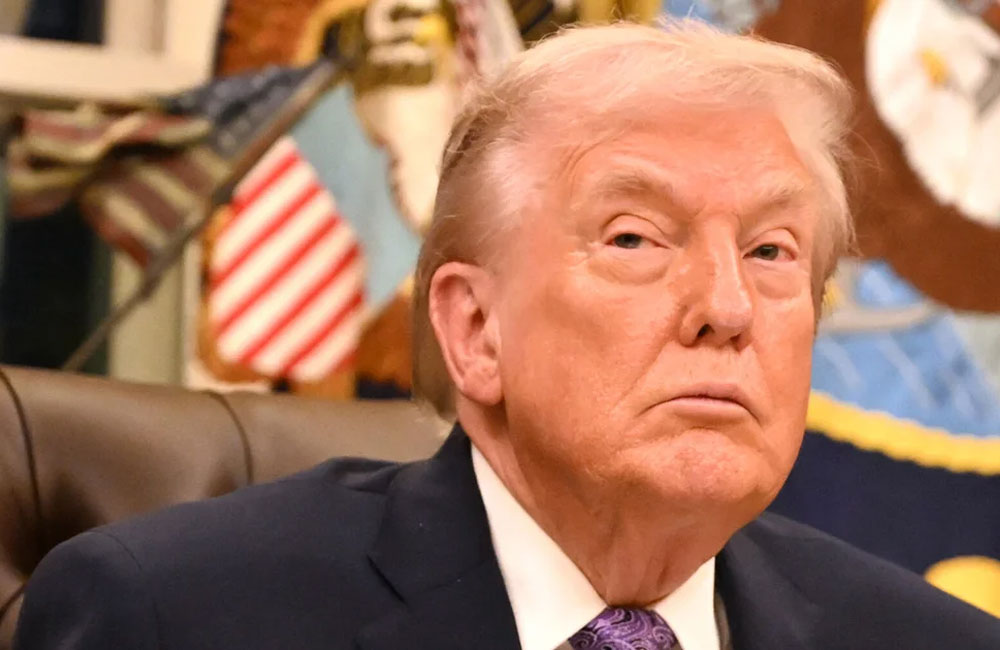
Trump Halts US Diversity Visa Lottery Following Brown and MIT Shootings
The US government has suspended the Diversity Visa (DV) lottery program following the fatal shootings near Brown University and the Massachusetts Institute of Technology, acting on the direction of President Donald Trump.
Homeland Security Secretary Kristi Noem announced the move, stating that the program had enabled the suspect to enter and remain in the United States. “This heinous individual should never have been allowed in our country,” Noem said in a post on X.
Authorities identified the suspect as Claudio Neves Valente, a Portuguese national. According to Providence, Rhode Island Police Chief Oscar Perez, Valente entered the United States on a student visa in 2000 and later obtained permanent resident status in 2017. He was found dead on Thursday evening from what police described as a self-inflicted gunshot wound.
President Trump has long been critical of the diversity visa lottery, which he argues poses security risks. The suspension follows a broader pattern in which his administration has used violent incidents to justify tighter immigration measures. Previously, after a November attack involving an Afghan national that killed National Guard members, the administration imposed strict immigration restrictions on Afghanistan and several other countries.
The DV lottery program allocates up to 50,000 green cards each year through a random selection process for applicants from countries with low levels of immigration to the United States, many of them in Africa. For the 2025 lottery, nearly 20 million people applied worldwide, with more than 131,000 selected when including family members. Portuguese citizens secured only 38 of those slots.Applicants selected through the lottery are invited to apply for permanent residency and must undergo interviews at US consulates, along with the same security checks and eligibility requirements applied to other green card applicants.
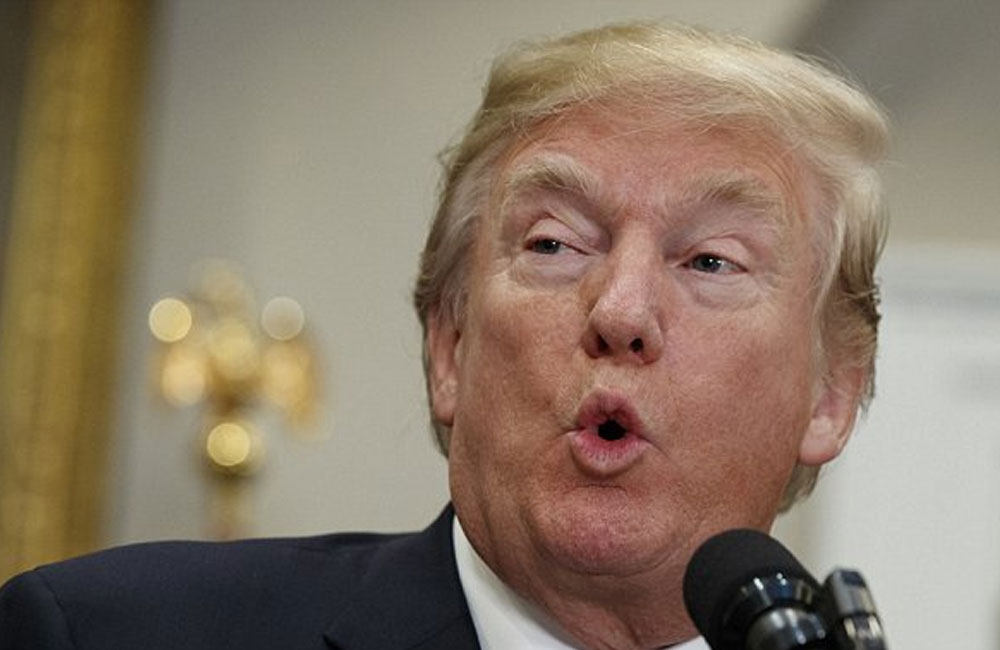
Trump warns of new tariffs on India, says they should not “Dump Rice” in US
US President Donald Trump has warned that he may introduce new tariffs on agricultural imports, especially on rice imports from India and fertiliser from Canada, as trade talks with both countries continue without major progress.
Trump made the remarks during a meeting at the White House where he unveiled a multi-billion-dollar farm relief package for American farmers while sharpening his criticism of agricultural imports from India and other Asian suppliers.
The Republican leader claimed imports were challenging domestic producers and reiterated his intent to address the issue by using tariffs aggressively to protect American producers.
He said the administration would direct “$12 billion in economic assistance to American farmers”, funded by tariff revenues the US is collecting from trading partners.
“We’re really taking in trillions of dollars, if you think about it,” Trump said, adding that countries “took advantage of us like nobody’s ever seen.”
He framed the new assistance as essential to stabilising the farm economy after what he repeatedly called inherited inflation and depressed commodity prices. “Farmers are an indispensable national asset, part of the backbone of America,” he said, arguing that tariff leverage was central to his strategy for reviving US agriculture.
India surfaced prominently as an example during a lengthy discussion on rice imports, which one Louisiana producer described as devastating for southern growers.
When told that Indian firms owned “the two largest brands” in the US retail rice market, Trump said, “All right, and we’ll take care of it. That’s great. It’s so easy… Tariffs, again, solves the problem in two minutes.”
“They shouldn’t be dumping... I mean, I heard that, I heard that from others. You can’t do that,” he added.
He also suggested possible tariff measures on fertiliser coming from Canada to encourage local production. “A lot of it does come in from Canada, and so we’ll end up putting very severe tariffs on that, if we have to, because that’s the way you want to bolster here,” he said, adding, “And we can do it here. We can all do that here.”
India-US agricultural trade has expanded over the past decade, with India exporting basmati, other rice products, spices, and marine goods while importing US almonds, cotton, and pulses.
Disputes over subsidies, market access and World Trade Organization complaints-particularly involving rice and sugar-have periodically strained bilateral negotiations
( source : adaderana.lk)
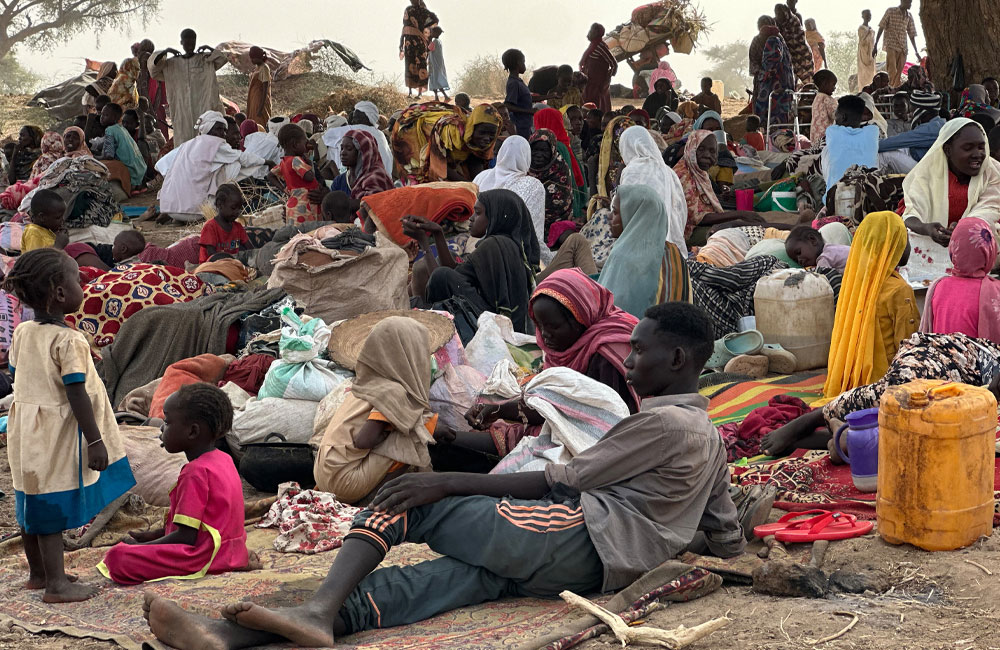
Over 1,000 civilians killed in Sudan's Darfur when paramilitary group seized camp, UN says

Grace Richardson makes history as first openly gay Miss England
20-year-old student Grace Richardson made history when she became the first openly gay Miss England over the weekend.
After winning Miss Leicestershire 2024, Grace Richardson re-entered the competition this year and won Miss East Midlands 2025. Progressing in the competition, she continued to wow the judges in several more rounds, delivering astounding singing and dancing performances.
Representing the East Midlands in the final at Wolverhampton’s Grand Station, she was crowned Miss England 2025 on Friday, November 21.
“I wasn’t expecting it to be me,” she said after the win. “There was so many incredible girls in that top 12 and I think all of them deserved to win.”
As the first openly gay Miss England, Grace opened up about having faced homophobic bullying from classmates after coming out five years ago. “I feel so powerful and proud of myself. My coming out story wasn’t the easiest. My very close friends and family were all very supportive. But for some reason those at school, my peers, just weren’t in the same way that my family were,” she said.
“It was a struggle to accept myself while a lot of people weren’t accepting me. To be able to represent England at such a prestigious competition and go to Miss World next year it feels like I am breaking down those barriers and expectations that my peers set for me.”
She added, “Knowing I’m able to share my story and represent a part of our community that hasn’t been represented in this way before is really special.”
“It is important for young people in the LGBTQ community to see people representing them in all types of walks of life,” she continued. “I haven’t seen anyone in pageantry talk about sexuality in the way that I have so it is important to me for them to feel seen.”
The 2025 Miss England contestant raised £42,000 for Beauty with a Purpose, the project that supports humanitarian efforts worldwide.
(Source- yahoo news)
Page 3 of 51